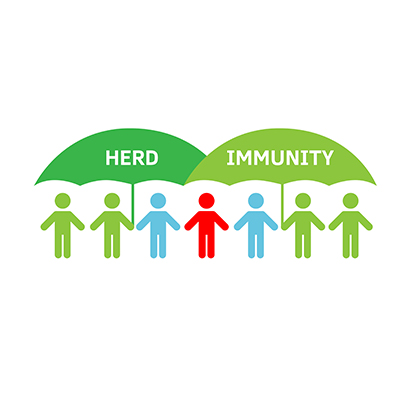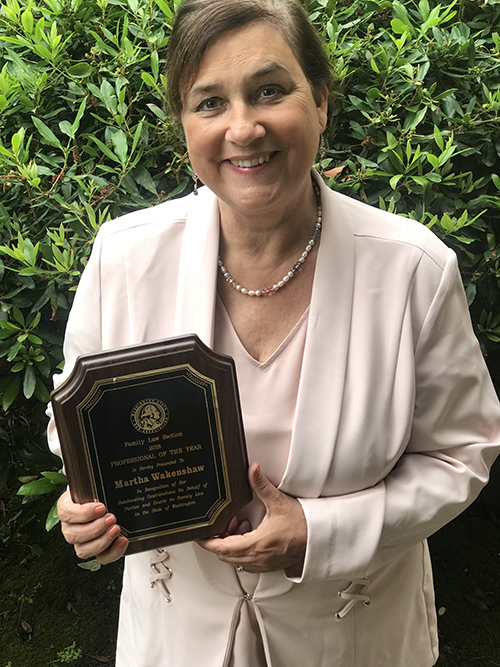Premarital Counseling and Marriage Education Workshops
Prevent Marriage Decay (Happily Ever After...?)
Posted on May 29, 2020
Dear Future Newlyweds,
 Congratulations on your plans to marry. I have a question for you! How would you like to ensure that your marriage gets off on the right foot? What if I told you that you could get the tools you need to ensure that your marriage is as “divorce proofed” as possible? What happens after the big party? How do you live happily ever after? Does it happen by magic? Is a fairy god mother going to grant you a happy marriage?
Congratulations on your plans to marry. I have a question for you! How would you like to ensure that your marriage gets off on the right foot? What if I told you that you could get the tools you need to ensure that your marriage is as “divorce proofed” as possible? What happens after the big party? How do you live happily ever after? Does it happen by magic? Is a fairy god mother going to grant you a happy marriage?
Why do people participate in marriage education?
Mya and Tyree (not their real names) were young and their parents did not take their marriage seriously. They wanted to prove to their parents that they were willing to take an in depth look at their relationship and make sure they “covered” all the necessary areas such as: values, finances, sex, time management, career development, and personality compatibility. Tyree rejected the idea of marriage or premarital counseling, feeling that they didn’t need marital therapy, but he was completely open to the idea of premarital education. They wanted to take a marriage class to learn the reality of what marriage is and what challenges they were likely to face.
Sara and Jim thought they had a good relationship and they did. They wanted to make sure they would enter marriage with every possible tool available to them. They did not belong to a church, but they wanted the marriage preparation that many churches offer. The participated in a premarital education workshop and appreciated having their strengths affirmed. They learned ways to deal with issues that could turn into serious marital problems, and learned more about each other than they ever could have imagined. Participating in a premarital counseling program was fun and educational. They felt the secular premarital education rather than religiously themed marriage preparation workshop was a better fit for them. They were living together and feeling that their cohabitation and premarital sex would be judged.
Darnell and Jaymie came to premarital counseling because they could not agree on whether or not they would have children. They were crazy about each other but they were having a difficult time building a mutual dream. He wanted a future with a family and she was sure she would not want children. They were afraid if they went ahead with their wedding that resentment would tear them apart. They learned how to discuss this gridlocked problem and decided to postpone their wedding until they made some peace with the issue. Not all problems have to be solved; it is the dialogue that is most important. However, if a person is adamant on how they want to build their future and will not compromise on a core value they cannot continue to build a common dream together.
Tara and Jamel came to premarital counseling because they did not like the way they argued and wanted to learn skills as to not damage their relationship. Tara felt like she was walking on eggshells when she came home from work. As soon as Jamel walks in the door from work, she wants to hug and talk about her day. Often, Jamel is clearly irritated by this and brushes her off. She would end up feeling hurt and rejected. Jamel felt smothered and he just wanted to chill out and unwind from work. She missed Jamel during the day and wanted to connect. He had a high pressure intensive job and needed to come home and “empty out my brain”. They had different needs and often ended up arguing. They needed to learn how to state their needs and be able to listen to what their partner wanted. They learned ways to negotiate and found a new ritual of connection that fulfilled what they both needed connection and space to unwind. Both wanted to have a healthy successful marriage.
Ann and Julie are a couple planning a wedding and they are having difficulty incorporating their families and traditions when the law does not recognize their union [yet]. Ann has a teenage son and Julie is worried how she will fit in and take on a supportive parenting role. They learned new effective ways to compromise and build trust with each other around sensitive issues of parenting and family roles.
We already have a great relationship, why would we need marital education? Isn't love enough?
No, love is not enough. It is where you start. Hopefully everyone who gets married has love as a foundation, yet 50 percent still get divorced. Love is not enough to create a happy, healthy successful marriage that will endure life’s challenges and stages. All successful marriages require work and commitment.
You take courses to prepare for a career; you may even take a prep course before an exam such as the GRE, SAT or many people study for their driver’s license! Marital researchers agree that participating in good premarital education may reduce your chance of divorce by 30% and increase your marital satisfaction. You are planning your life together and you want to do everything you can to make it successful. Research shows the year to six months before the wedding or six months to a year after the wedding is the best time for marriage education. Any time is a great time to learn skills to enrich your marriage.
Life is more complex now with dual careers and raising children. When both parents work, as most do now, kids still need to get to basketball practice, dance, friends, dinner needs to be made and the house needs to be cleaned. When do parents have time to cultivate their ongoing relationship? Do they wait for date night? No! It is all the little touches that help you make it through the day. John Gottman, PhD, world’s top marriage researcher prescribes a 30 second kiss daily!
Today’s marriages require that couples have very strong abilities to communicate, work through solvable problems and learn to live with the unsolvable. Further they must maintain mutuality and set goals. Without this, it is easy to feel flooded by stress and responsibilities. Problems can seep in more than couples realize. As much as it's important to come to terms with unrealistically positive expectations, those who grew up with divorced or unhappily married parents may find that they have unacknowledged and unexplored expectations that their marriage, too, may become unhappy. Marriage preparation functions as an immunization that boosts your capacity to handle potential difficulties. Couples need tools and skills to succeed in today's marriages.
Research
Let me share some statistics with you to help you understand how important marriage education is to the success of your partnership. We have all heard the statistics that indicate that 50% of all marriages end in divorce. It is well known that some of the major reasons marriages get into trouble involve, intimacy problems, finances, housework, and basic communication issues. According to Dr. Jason Carroll and Dr. William J. Doherty research has shown that marriages that start with marriage education have a 30% higher chance of success, over those that go it alone. Leading marital researchers like John Gottman and Howard Markman are saying these skill-based pre-marital workshops are the best way to “Divorce-Proof your marriage. They report improved communication, better conflict management skills, higher dedication to one's mate, greater emphasis on the positive aspects of a relationship, and improved overall relationship quality.
Unhappy couples and those who divorce tend to resort to what John Gottman, a Seattle psychologist and one of the pioneers of the study of marital behavior calls "the Four Horsemen of the Apocalypse": criticism, contempt, defensiveness and stonewalling. They get stuck in negative, destructive patterns, have fewer positive interactions than happy couples and are unable to resolve problems.
What is the difference between premarital counseling and marriage education?
The two phrases are often interchangeable and it depends on the teacher. If the teacher is a therapist, premarital couples often get the marriage education while working through a particular issue. I call it “marriage education with therapeutic moments.” Sometimes couples have developed negative patterns and habits of communicating and dealing with conflicts that they need intensive work on healing the damage. They then learn new skills to effectively work through issues.
Some marriage educators are not trained therapists and they provide the basic training on marriage success. If issues arise, as they often do, they refer a couple to a therapist. Both teach couples information and skills that will help them create and maintain a strong, stable, satisfying marriage. Marriage education is based on current research about what makes marriages succeed or fail. It includes information on the benefits of marriage and teaches behaviors that will help build a strong marital bond and keep love strong.
Look for an education program that offers a comprehensive marriage education program that will equip you with the tools you need to increase intimacy, improve communication, and solve typical problems newly married couples face.
-
Strengthen your friendship.
-
Develop strategies for better communication.
-
Work on the “big” issues: family, finances, intimacy, and yes, even housework!
-
Help one another to divorce proof your marriage
-
Feel confident, excited and enriched.
-
You will know your partner better than when you began.
-
The guys will have fun too!
What are the main goals of premarital workshops?
The purpose of a premarital workshop is to help couples understand how family history can create opportunities to grow in their relationship. Ideally, each couple should complete a relationship assessment to help them identify strengths and areas to work on together. You learn how to build on your friendship and enrich your level of intimacy, and learn how roles change once you become husband, wife, mother, father, and an in-law.
Strategies for balancing family, work and time for one another should be included, as well as safe communication with respect to tough topics. You can learn to overcome inhibitions on these tough topics and how to work through solvable problems and decide if and how you can live with the unsolvable. You start to develop an understanding of financial issues such as budgeting, retirement, and the frequently asked question "how will being married affect my financial situation."
Comments from two couples who have attended premarital workshops.
“I really enjoyed my time; I felt that we gained quite a bit of insight from this workshop. Some of the things we discussed, we didn’t even know that we had a weakness in. It was good to pinpoint those areas so that we can work on them for the future. Since the session we have several effective conversations and ferreted out some uncomfortable topics.”
“I’ve never attended any sort of therapy or counseling in my life and I could not have imagined a better situation. I felt like I could be myself and I was very comfortable.” “The sessions pointed out new strengths and made me appreciate my relationship even more.”
Nikelle Rosier is a Licensed Independent Clinical Social Worker with a special interest in premarital education. Nikelle does private premarital counseling to help couples work on specific identified issues, frequently leads premarital workshops in the greater Seattle and King County Washington area, and also does structured premarital counseling when a couple wants to work privately on the same content offered in her premarital education workshops. See also: List of Washington State counselors who provide marriage counseling and premarital (pre-marital) counseling.
This document is Copyrighted© by Counseling Seattle LLC and may not be reproduced, in whole or in part without crediting the author, source and site name. All rights reserved.
SEE ALSO:
More Mental Health Articles
Sexual Bias Articles
Race Relations Articles
How Drugs and Alcohol Affect the Brain and Body
WA. Counselor Directory: find a therapist near you
How helpful is this web page to you?
(and how can we can improve this page for you?)
not helpful
very helpful
Other Articles
What is Herd Immunity?
How Will We Achieve It?
“Herd immunity occurs when enough people become immune to a disease to make its spread unlikely." The elimination of the weak--achieved by the death the elderly and others who have compromised imm... read more
What is EMDR? Eye Movement Desensitization and Reprocessing
EMDR, the acronym or abbreviation for Eye Movement Desensitization and Reprocessing, is used to relieve the symptoms of post-traumatic stress disorder (PTSD) and other mental health problems, o... read more
U.S. Pandemic--who should live, who should die?--epidemiologists vs economists
Of two minds—Who should live and who should die? “The real reason epidemiologists and economists keep arguing” Opinion, April 2, 2... read more
From the Counselors Side of the Screen
Online counseling during the pandemic
Right before the pandemic hit and hit hard closing down businesses and causing families to quarantine with the Governor’s Stay-at-Home orders, I sat with a client I’ll call Jake in my Bainbridge... read more




